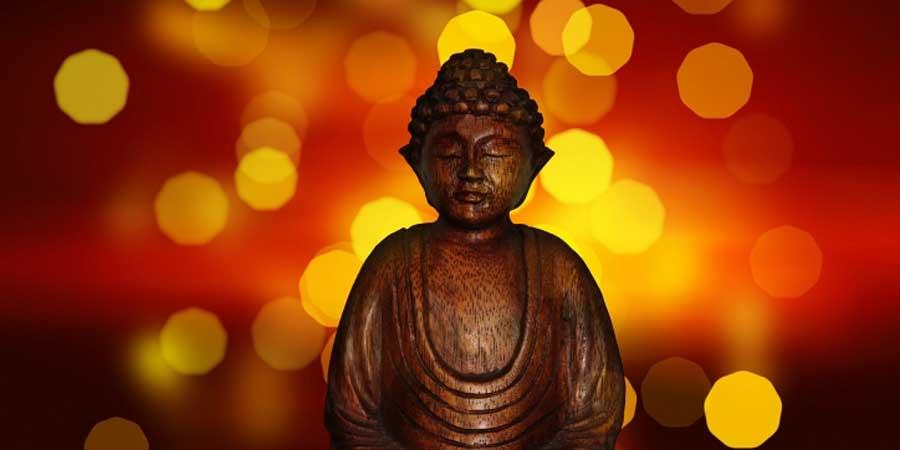Reply To:
Name - Reply Comment

Coronavirus pandemic has brought into sharp relief the concept of Impermanence (Annicca) propounded by the Lord Buddha. The ongoing virulent covid-19 pandemic which has caused immense suffering, agony, death and despair to tens of millions of people in the whole world has taught us the core teachings of the Buddha, the three characteristics (tilaakkana) of our existence in this world, namely impermanence (annicca), suffering or unsatisfactoriness (dukka) and non-self or insubstantiality (anatta). Impermanence is one of the fundamental teachings of Buddhism which can be observed in the entire nature of the universe. All component things that are all things that arise as an effect of causes, and which in turn give rise to effects are embodied in the single word annicca.
Lord Buddha. The ongoing virulent covid-19 pandemic which has caused immense suffering, agony, death and despair to tens of millions of people in the whole world has taught us the core teachings of the Buddha, the three characteristics (tilaakkana) of our existence in this world, namely impermanence (annicca), suffering or unsatisfactoriness (dukka) and non-self or insubstantiality (anatta). Impermanence is one of the fundamental teachings of Buddhism which can be observed in the entire nature of the universe. All component things that are all things that arise as an effect of causes, and which in turn give rise to effects are embodied in the single word annicca.
Today people are living in uncertain times and no one knows exactly what will happen to our lives and the lives of our loved ones, as the pandemic we are going through is unprecedented and unpredictable.
All things change, nothing ever stays the same. Everything that exits changes and transient. Change is the essence of life and the essence of existence. Transience is the universal law of all phenomenal things and it teaches us nothing remains the same for two consecutive moments. What is built eventually crumble and fall, whoever is born will eventually die, and what comes together will eventually separate.
"Mentally our ideas, thoughts and concepts change from time to time and new ideas and concepts come into being. Lastly from the social perspective, we form new relationships, we meet new people, we separate from our dear loved ones, we change our employments and getting into new jobs, eventually, we lose our loved and dear once etc."
We can visualise four areas of impermanence; physical, emotional, mental, and social. We can see how the physical world is changing and by the periodic changes of the seasons, ageing, sickness and death. In the emotional world we can see impermanence through the constant changes of feelings and emotions as one moment we might be euphoric, happy and elated next moment feeling sad and melancholy. Mentally our ideas, thoughts and concepts change from time to time and new ideas and concepts come into being. Lastly from the social perspective, we form new relationships, we meet new people, we separate from our dear loved ones, we change our employments and getting into new jobs, eventually, we lose our loved and dear once etc.
In other words, contemplating on impermanence brings to the surface the dreadful truth that everything we have acquired, earned and accomplished, all our precious possessions, material things even our most intimate and cherished relationships, our loved ones inevitably succumb to time and deteriorate and cease to exist.
In one of the discourses recorded in Anguttara Nikaya, the Buddha offered the following simile to explain the limited and fleeting nature of human life. “Just as a dewdrop on the tip of a blade of grass will quickly vanish at sunrise and will not last long, so is human life, like a drop of dew, it is limited, brief and fleeting and it has much suffering, full of tribulation…. none who is born escape death. Therefore, given the limited and fleeting nature of human life, it becomes important for Buddhist to develop “mindfulness of death”.
King Pasenadi of Kosala at Savatthi asked Lord Buddha once “Venerable Sir, is there anyone who is born free from ageing and death” then Lord Buddha replied “Oh, great King, no one who is born is free from ageing and death. Even those affluent, rich, with great wealth and property, with abundant gold and silver, and abundant treasures, because they are born are not free from ageing and death.”
The renowned Greek Philosopher Heraclitus once declared “No man ever steps in the same river twice, for it is not the same river and he is not the same man”. There is no static being no unchanging substratum. In his notes to the novel “Chance” one of the greatest Polish British novelists Joseph Conrad stated thus “The history of men on this earth may be summarised in one phrase of infinite poignancy “They were born, they suffered, they died”. Similarly, James brother of Jesus according to the New Testament ask “Why you do not even know what will happen tomorrow. What is your life? You are but a mist that appears for a little while and then vanishes” (James 4:14). The Teacher (Jesus) in the Gospel of Mary Magdalene declares: “All that is born, all that is created all that is composed, shall be decomposes.”
"Today people are living in uncertain times and no one knows exactly what will happen to our lives and the lives of our loved ones, as the pandemic we are going through is unprecedented and unpredictable"
Impermanence brings us face to face with our mortality, in the face of ravaging covid-19 pandemic. The way things are turning out we may not live through the day. When we look around at our people, relations, possessions all will one day be gone. Lord Buddha’s last admonition to his disciples was “all conditioned things are impermanent, subject to change and strive on with diligence”.
Impermanence is closely linked to the truth of suffering which constitutes the first noble truth in Buddhism. The Lord Buddha taught us that cause of human suffering and discontent is brought about by our clinging to worldly things under the mistaken belief that they will last and endure forever which is not so.
In other words, we cannot think of any object in this conditioned world that is not annicca. When we comprehend the basic truth of Impermanence (annicca), the tendency to cling on to our attachment to worldly things is bound to diminish and our lives become enriched with great equanimity so that we are in a better position to let go of our belief of permanence and stability of our life.
Impermanence continually presents challenges and people are faced with various life obstacles that are often out of their control. Recognising the reality of Impermanence not only will help us to live in the present moment but also increase our ability to overcome difficulties in life.
Although Buddhism emphasizes the universality of suffering it cannot be characterised as a pessimistic religion. It is neither totally pessimistic nor optimistic but realistic as it not only emphasizes the truth of suffering but also suggests a means to end the suffering and gain eternal happiness.
Man has achieved great marvellous things throughout the centuries, his ingenuity and strength have enabled him to conquer space and subdue matter to his will. Yet for all his capabilities and ingenuity he remains fragile vulnerable in the face of impermanence.
Even with the most brilliant application of modern science and technology man has not yet seen the possibility of outlawing the ephemeral nature of human life and his ultimate enemy: death
Impermanence highlights the mortality and inevitable decline of mighty leaders and their false pride how time has brought to an end the commanding powers of great leaders in the world. When we look at the ruins of great stupas and edifices in places like Anuradhapura and Polonnaruwa we can see how they have been subjected to the natural process of decay with the passage of time.